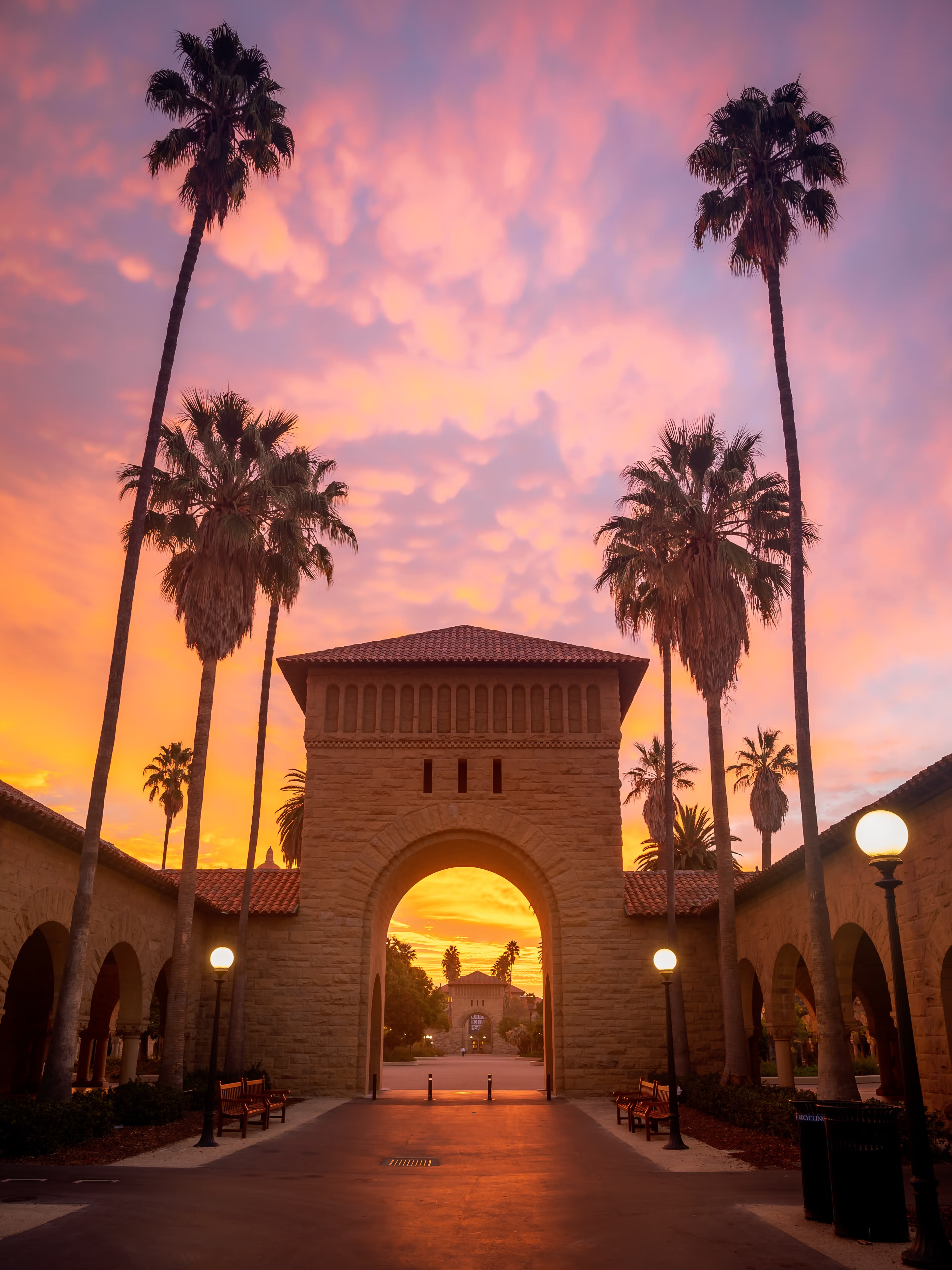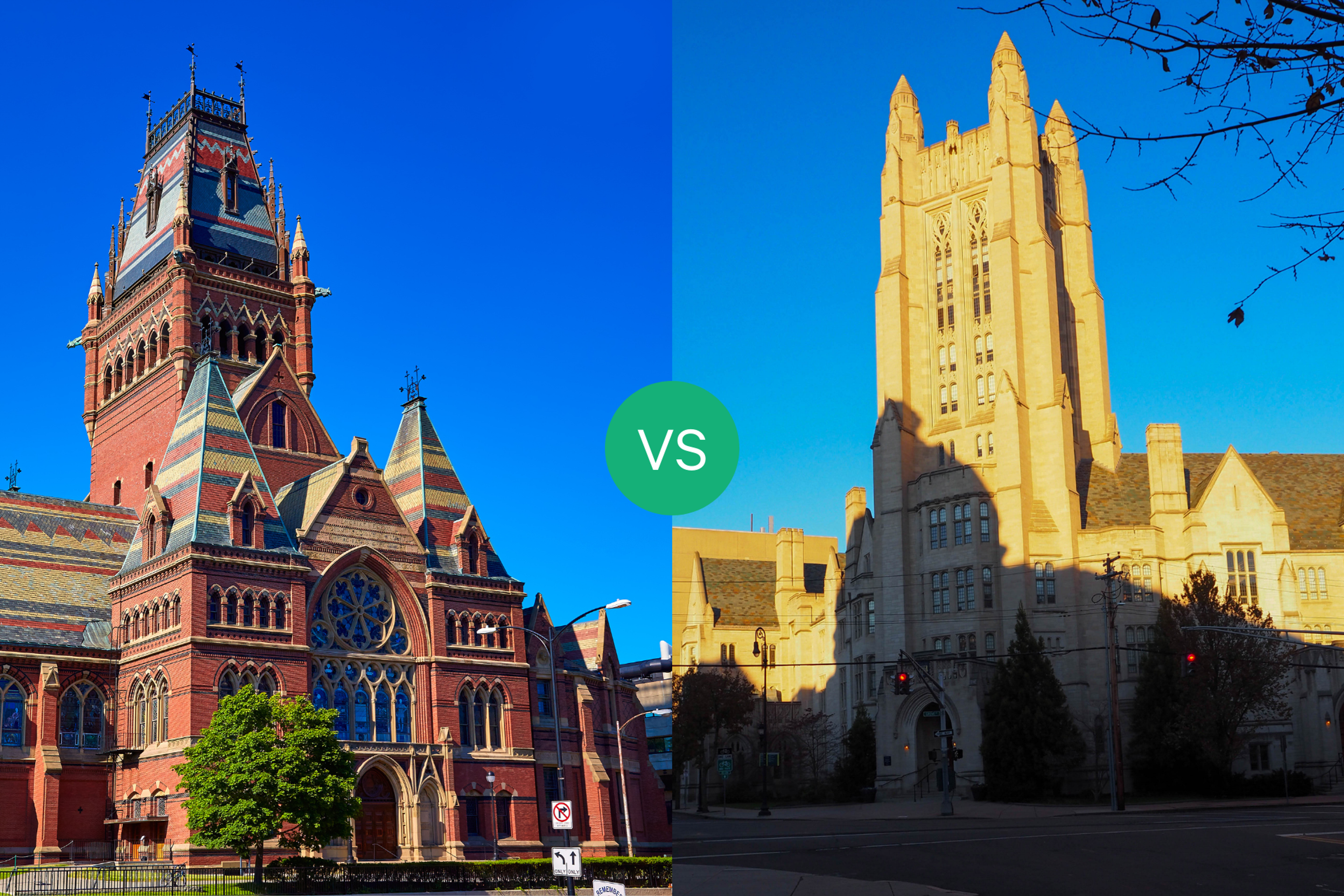Stanford Law School Vs. Georgetown University Law Center: An In-Depth Comparison
Are you considering pursuing a law degree but can't decide between Stanford Law School and Georgetown University Law Center? Look no further! Our in-depth comparison of these two prestigious institutions will provide you with all the information you need to make an informed decision.
Posted April 10, 2025

Table of Contents
Welcome to our comprehensive comparison of Stanford Law School and Georgetown University Law Center! In this article, we will dive into the differences and similarities of these two prestigious institutions to help you make an informed decision when choosing where to pursue your legal education. From admission processes to alumni networks, we will cover everything you need to know about these schools. So, let's get started!
Class Profiles
Stanford (2025)
- Acceptance Rate: 6.9%
- Median GPA: 3.92
- Median LSAT: 173
- Median GRE: 167 (V); 165 (Q)
- BIPOC: 46%
Georgetown (2024)
- Acceptance Rate: 17%
- Median GPA: 3.86
- Median LSAT: 171
- Women: 56%
- BIPOC: 34%
- First Gen: 11%
Admission Process Comparison
Stanford
2023-2024 Deadlines: TBD
Core Application Requirements:
- Application: Must be submitted through LSAC
- Application Fee: $85
- Resume
- Personal Statement
- Optional Diversity Essay
- Optional Short Essays
- 2 Letters of Recommendation
- LSAT / GRE
Georgetown
2023-2024 Deadlines: TBD
Core Application Requirements:
- Application: Must be submitted through LSAC
- Application Fee: $85
- Resume
- Personal Statement
- Optional Diversity Statement
- Optional Response
- 1 Letter of Recommendation
- LSAT / GRE
Cost of Attendance
Stanford (On-Campus)
Tuition: $71,610
Housing: $20,081
Food: $7,080
Personal Expenses: $8,430
Books and Supplies: $1,530
Student Services Fee: $1,350
Health Services Fee: $753
Local Transportation: $1,800
Total: $112,634
Georgetown (On-Campus)
Tuition: $75,950
Books: $1,400
Basic Living Expenses: $24,220
Personal Expenses: $3,465
Transportation: $3,165
Total: $108,200
Note that both schools offer need-based aid and various scholarships, so these costs can go down if you receive financial help!
Curriculum Comparison
Stanford Law School's curriculum offers a wide range of courses, including traditional legal topics such as contracts and torts, as well as innovative and interdisciplinary courses. As an example, here are a few classes to be offered in Fall 2023 for Stanford Law students:
- Civil Procedure
- Contracts
- Torts
- LRW (Legal Research & Writing)
- International Peace Negotiations
- Regulation of Global Financial Markets
- The Business of Venture Capital
- The Changing Media Landscape, Free Speech and the Law
- The Role of the Article III Judge
- Ukraine: The Promise and Perils of Legal Reform and Governance, in Wartime and Reconstruction
On the other hand, Georgetown University Law Center has a strong focus on public interest law, with a variety of courses and programs dedicated to social justice issues and public service. Here are some of their Fall 2023 offerings:
- Constitutional Law I
- Torts
- Civil Procedure
- Legal Practice: Writing & Analysis
- A Due Process Hearing Simulation: Protecting the Rights of a Student With a Disability
- Constitutional Law II: Individual Rights & Liberties
- Federalism in a Changing Legal Landscape
- Regulating Online Speech in the Age of Social Media
- Reimagining the Role of the Public Defender
- The Role of the State Attorney General
Notable Differences Between Stanford and Georgetown Law
Rankings and Reputation: Stanford Law School is typically ranked higher in national and international law school rankings compared to Georgetown Law Center. Stanford consistently ranks within the top five law schools in the United States, while Georgetown is usually ranked within the top 15 or top 20.
Class Size and Community: Stanford Law generally has a smaller student body compared to Georgetown Law. A smaller class size may lead to more personalized attention from faculty and a tight-knit community among students.
Curriculum and Specializations: Both schools offer a diverse range of legal specializations and concentrations. Stanford Law School is known for its strength in areas like intellectual property law, corporate law, and criminal law, while Georgetown Law Center has strong programs in fields such as international law, constitutional law, and environmental law.
Career Opportunities and Networking: Due to their different locations, students at each institution have unique career opportunities and networking advantages. Stanford Law students can tap into the Silicon Valley network, while Georgetown Law students have access to the legal and political community in Washington, D.C.
Clinics and Experiential Learning: Both schools offer various clinical programs and experiential learning opportunities, but the specific clinics and hands-on experiences vary between the two institutions. Here is what the two schools offer:
Stanford
- Community Law Clinic
- Criminal Defense Clinic
- Criminal Prosecution Clinic
- Environmental Law Clinic
- Immigrants’ Rights Clinic
- International Human Rights and Conflict Resolution Clinic
- Juelsgaard Intellectual Property and Innovation Clinic
- Organizations and Transactions Clinic
- Religious Liberty Clinic
- Supreme Court Litigation Clinic
- Youth and Education Law Project
Georgetown
- Appellate Courts Immersion Clinic
- Appellate Litigation Clinic
- Center for Applied Legal Studies (CALS)
- Civil Litigation Clinic
- Civil Rights Clinic
- Communications and Technology Law Clinic
- Criminal Defense and Prisoner Advocacy Clinic
- Criminal Justice Clinic
- Domestic Violence Clinic
- Environmental Law & Justice Clinic
- Federal Legislation Clinic
- Health Justice Alliance
- Intellectual Property and Information Policy Clinic
- International Women's Human Rights Clinic
- Juvenile Justice Clinic
- Policy Clinic (Harrison Institute): Community Equity, Food & Health, Worker Rights, and Climate & Trade
- Racial Equity in Education Law and Policy Clinic
- Rising for Justice
- Social Enterprise and Nonprofit Law Clinic
- D.C. Street Law Program
How to Get Into Stanford Law School and Georgetown Law Center
1. Academic Excellence: Both schools place a strong emphasis on academic achievement. Maintain a high GPA throughout your undergraduate studies and take challenging courses that demonstrate your intellectual abilities.
2. LSAT: Prepare thoroughly for the LSAT, as it is a critical component of your law school application. Aim for a high score, as it can significantly impact your chances of admission.
3. Letters of Recommendation: Seek letters of recommendation from individuals who can speak to your academic abilities, work ethic, and potential as a law student. Choose recommenders who know you well and can provide detailed and positive insights about you.
4. Personal Statement: Craft a compelling personal statement that showcases your unique experiences, motivations for pursuing law, and how you would contribute to the law school community.
5. Resume/CV: Prepare a well-organized resume that highlights your academic achievements, work experiences, extracurricular activities, and any relevant accomplishments.
6. Extracurricular Activities: Engage in extracurricular activities that align with your interests and demonstrate leadership, commitment, and impact.
7. Demonstrated Interest: Show genuine interest in the specific law school. Attend admissions events, visit the campus if possible, and connect with current students or alumni to gain insights about the institution.
8. Tailor Your Application: Customize your application for each school. Understand the unique qualities and values of each law school and explain how you align with their mission.
9. Optional Essays: Both Stanford and Georgetown offer optional essays. Take advantage of this opportunity to address any unique circumstances or aspects of your application.
10. Be Yourself: Be authentic throughout the application process. Admissions committees look for applicants who are genuine and can bring diverse perspectives to the classroom.
Read:
- How to Get Into Law School: Advice from an Expert
- How to Write a Compelling Law School Personal Statement
- Law School Application Timeline: Your Step-by-Step Guide
- Yale Law School: Program and Application Overview
- Stanford Law School: Program and Application Overview
We hope this article has provided you with the necessary information to make an informed decision about your legal education. Good luck with your future endeavors!











